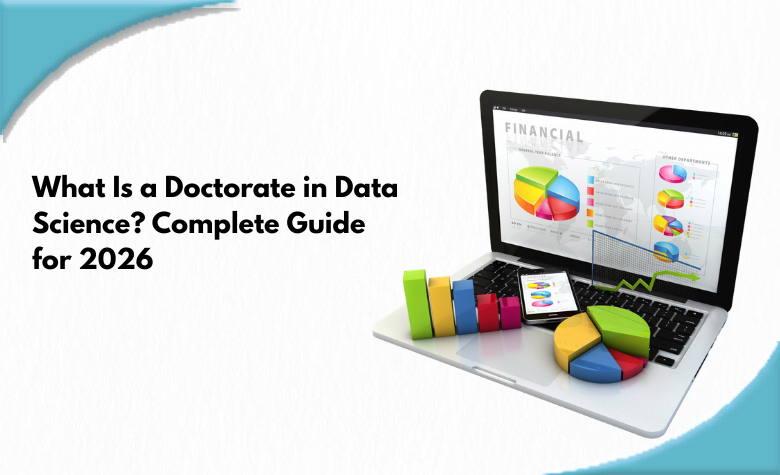Top 10 Reasons to Enroll in a Marketing Analytics Course Today
- May 19, 2025
- 4 min read

Introduction: The Rise of Data-Driven Marketing
In the rapidly evolving world of digital marketing, data is the new currency. Businesses no longer rely on guesswork to make decisions; they use data to drive every aspect of their strategies. This shift has created a massive demand for professionals who understand how to collect, interpret, and apply data insights. That’s where a marketing analytics course becomes indispensable. Whether you're a budding marketer or a seasoned professional, learning how to interpret marketing data can propel your career forward.
1. High Demand for Marketing Analytics Professionals
With the explosion of data from social media, web traffic, customer feedback, and email campaigns, companies are desperately seeking professionals who can make sense of the noise. By enrolling in a marketing analytics course, you position yourself at the forefront of this demand. From multinational corporations to startups, every business needs experts who can transform data into actionable insights.
2. Gain In-Demand Data Skills
A marketing analytics class equips you with highly sought-after skills such as data visualization, A/B testing, predictive modeling, and performance tracking. These are the very skills that companies are looking for when hiring data-savvy marketers. By taking a marketing analytics course, you gain technical and analytical abilities that make you stand out in the job market.
3. Make Smarter, Data-Backed Decisions
Gone are the days when marketing decisions were based on intuition alone. Today, successful marketing campaigns are grounded in data. Learning how to extract and analyze this data through a marketing analytics course empowers you to make smarter decisions. You'll be able to determine what works, what doesn’t, and how to improve your strategies for better results.
4. Improve Marketing ROI
Every marketer wants to know the return on investment (ROI) of their campaigns. But without analytics, this can be hard to measure. A marketing analytics course teaches you how to track key performance indicators (KPIs) and metrics that influence ROI. You’ll learn how to allocate budgets more effectively and optimize your campaigns for maximum impact.
5. Understand Customer Behavior Better
Marketing is all about reaching the right people with the right message at the right time. But how do you know who your audience is and what they want? Through a marketing analytics course, you can learn how to analyze customer behavior, segment audiences, and create personalized marketing strategies. This leads to more effective targeting and better customer engagement.
6. Master Tools Like Google Analytics and Tableau
A good marketing analytics course will give you hands-on experience with industry-standard tools like Google Analytics, Tableau, Power BI, and Excel. These tools help you track website performance, visualize data trends, and present your findings in an easily digestible format. Mastery of these tools makes you more efficient and valuable in any marketing role.
7. Boost Career Growth and Salary Potential
Professionals with marketing analytics skills are not only in demand but also command higher salaries. According to industry reports, marketers who can interpret data earn significantly more than those who can’t. By taking a marketing analytics course, you open doors to advanced roles such as Marketing Analyst, Data Strategist, Digital Marketing Manager, and more. These roles often come with better compensation and career advancement opportunities.
8. Stay Ahead of the Competition
In a competitive job market, having specialized skills can make all the difference. Enrolling in a marketing analytics course shows employers that you're committed to staying current and competitive. As marketing continues to become more data-centric, those without analytics skills risk being left behind. Learning marketing analytics ensures you're always ahead of the curve.
9. Learn from Real-World Case Studies
One of the most valuable aspects of a marketing analytics course is the exposure to real-world case studies. You’ll analyze actual business problems, apply analytical tools, and present data-driven solutions. This practical approach not only enhances your learning experience but also prepares you for real-life challenges in the workplace.
10. Versatile Applications Across Industries
While the term may suggest a focus on marketing, the skills you learn in a marketing analytics course are applicable across various industries including healthcare, finance, retail, and e-commerce. This versatility means that you are not confined to one career path but can explore opportunities across a broad spectrum of fields that value data-driven decision-making.
Conclusion: Start Your Marketing Analytics Journey Today
In today’s digital landscape, the ability to turn data into actionable marketing strategies is a superpower. A marketing analytics course provides you with the skills, tools, and confidence to excel in this data-driven world. Whether you want to enhance your current role, switch careers, or start your own business, learning marketing analytics is a smart investment in your future. Don’t wait—the best time to enroll in a marketing analytics course is today.
FAQs
Q1. Who should take a marketing analytics course?
Anyone interested in digital marketing, data analysis, business intelligence, or marketing strategy can benefit from a marketing analytics course. It’s suitable for students, working professionals, and entrepreneurs.
Q2. Do I need a technical background to learn marketing analytics?
No. While a basic understanding of marketing and data is helpful, most marketing analytics courses start with foundational concepts and gradually build up to advanced topics.
Q3. What tools will I learn in a marketing analytics class?
Most marketing analytics courses cover tools like Google Analytics, Excel, Tableau, SQL, R, and Python, depending on the course level and curriculum.
Q4. How long does it take to complete a marketing analytics course?
The duration varies by course and format, but most can be completed in 2 to 6 months with part-time study.
Q5. What are the career outcomes after completing a marketing analytics course?
You can pursue roles like Marketing Analyst, Data Analyst, Campaign Manager, Digital Strategist, or even transition into roles like Product Manager and Customer Insights Specialist.
Ready to take the next step? Learn marketing analytics and unlock your potential today!





Comments